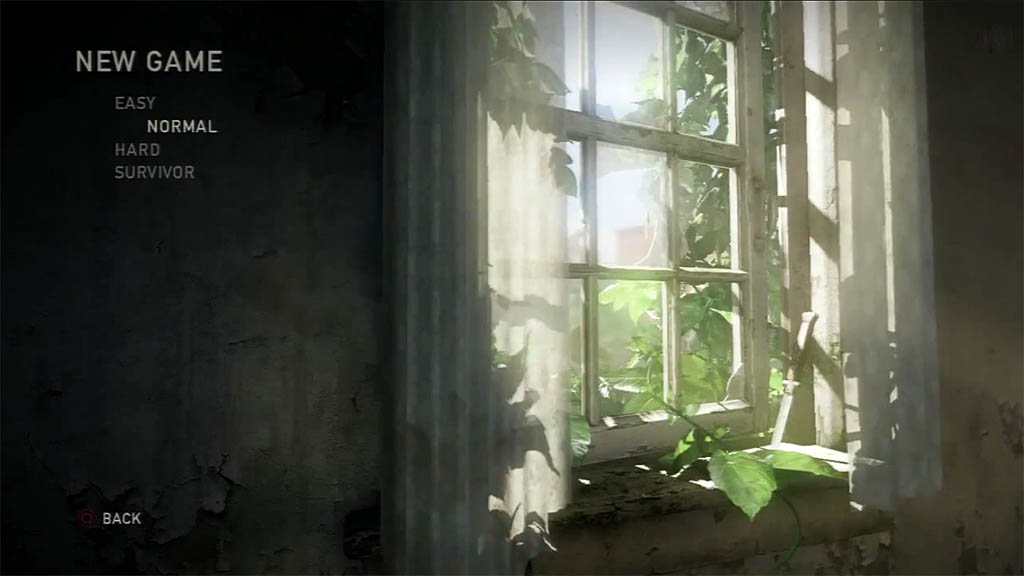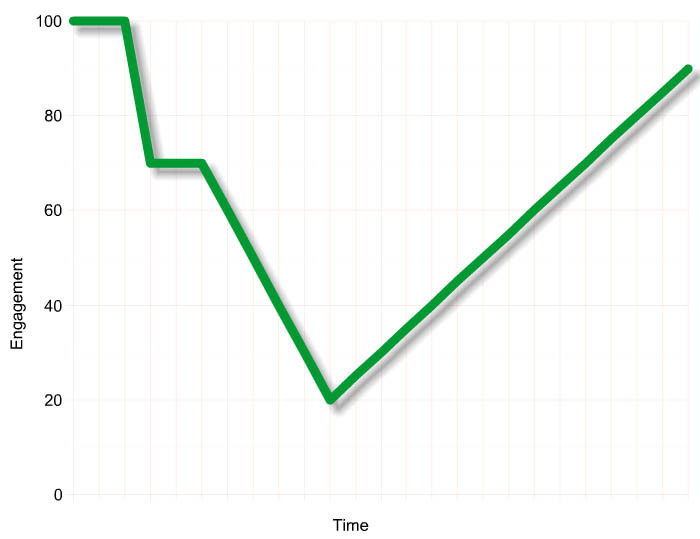Trending
Opinion: How will Project 2025 impact game developers?
The Heritage Foundation's manifesto for the possible next administration could do great harm to many, including large portions of the game development community.

Featured Blog | This community-written post highlights the best of what the game industry has to offer. Read more like it on the Game Developer Blogs or learn how to Submit Your Own Blog Post
Can a great opening work against your game?

This post originally appeared on The Astronauts blog.
Do not worry. This post is safe to read, I will not spoil The Last of Us for The Rest of You.
There are game openings that cannot really be spoiled, but the one from the Naughty Dog’s game is not one of them. Even though you know exactly what is going to happen the second after you press Start.

Here’s the kicker: the opening of The Last of Us will blow your mind, and for this particular game, it’s a bad thing.
Actually, for most games it’s a bad thing.
But let’s start with smaller things. Is the opening of The Last of Us free from the ludonarrative dissonance? No, it’s not. Does it feel overscripted in places? Yes, it does. Are there invisible walls in the middle of a big room? Yes, there are.
I think we – game developers – should do everything we can to avoid these problems in our openings. The players are always in “poke everything, check every corner” mode when they start a video game. They are much more forgiving later on, when they are already under the game’s charm. So I do think it’s crucial we sacrifice disproportional amount of time and effort to a game opening, and make our intro sections spotless.
Well begun is half done. - Aristotle
But I wrote about these things before, and other people wrote about them, and I promised not to spoil the game for you, so let’s move on. Especially considering that, despite all of its issues, the opening of The Last of Us is still one of the best openings of all time. Of. All. Time.
So why is it a problem?
In this remarkable GDC lecture, Troy Skinner from WB Games explains how so-called “bro gamers” are almost never giving a game the second chance. For example, they may die, think that’s it’s too much effort to play again from the checkpoint, and simply drop the game and never play it again. And bro gamers – according to Troy – are 65% of all people who purchase your game.

Difficulty is not the only source of frustration. Boredom is another.
This is exactly what The Last of Us suffers from. Temporarily, of course, but bro gamers do not care.
The opening kicks your emotions into the highest gear, and it’s only expected that what happens next cannot top the first ten minutes. The cooldown process begins. Then continues. For an hour or so. Nothing interesting happens. Your objective is enigmatic and dull. Your companion lacks personality. And, inevitably, you reach the bro-drop point and ask yourself: “Why exactly am I playing this?”
This is an exaggeration, of course, as the worst minutes of The Last of Us are still better than the best minutes of most games. Also, the boredom does not kick in instantly. After the opening, there’s still a couple of fresh, interesting things to digest and enjoy.
It’s “an ongoing process”.
And then, of course, the game gets back on its feet and never lets go. I am six hours in, and I want it to never end. Yes, it is that good. Yes, finally the reviewers got it right. And it’s not just the question of insane visuals or the best writing that ever came out of Naughty Dog, it’s also the gameplay and the thrilling moments it offers. It’s a complete, near-perfect package. Believe the hype.
But let’s get back to why grand openings can ruin a game.
Let’s recap what happens in The Last of Us:

So we have the mind blowing opening, then the inevitable drop of excitement, but it’s still high and stable for a short while, as we experience some cool new stuff, and then it all goes downhill from there, until about an hour or so in the game we re-learn to love it again through breathtaking set pieces, terrific story and engaging gameplay.
It is obvious that we should never allow the bro-drop point to exist, and we all want our engagement in the upper values all the time.
The problem is: the bro-drop point is relative. It is 20% engagement on the chart, but it only feels that way because half an hour earlier the engagement was at 100%. It’s the contrast between “then” and “now” that’s the heart of the problem.
Now here is where it gets really interesting. Normally, the player’s engagement will grow even if your game is “flat”. “Flat” does not mean “nothing new happens”, it means “the core of the experience stays the same”.
The best example that springs to mind is a comedy movie. The scene in the 65th minute is not necessarily funnier than the scene in the 5th minute. But at the 65th minute – assuming the movie is any decent – we are way more engaged (in the characters and the story) than we were at the 5th minute. So we laugh louder and longer. Observe how people react in the cinema in the beginning and at the end of a great movie.
Beginnings are sudden, but also insidious. They creep up on you sideways, they keep to the shadows, they lurk unrecognized. Then, later, they spring. ― Margaret Atwood
So, even if a game is fantastic, but “flat” (and most games are actually like that, there is a reason why we call the core of a game “a gameplay loop”), the engagement will grow. Once “in the zone”, the players will stay in the zone.
Unless, of course, something ruins it.
Like a kick ass opening. Or, to be precise, the inevitable “dull lull” that follows such opening.
Let’s take a look at the movies again. Avatar. Godfather. Titanic. Avengers. The Lord of the Rings. The Dark Knight. All of these magnificent and/or highly successful movies do not feature an explosive opening that trumps almost everything else that happens later. Hell, some of them actually start quite slow, including the classics like Die Hard.
Meanwhile, for some reason game developers believe that their game's opening must be “explosive”. Well, if you truly can sustain the excitement at nearly 100% for most of your game – hello, God of War and Modern Warfare – then good luck and have fun. But most of the games that open with a metaphorical bang, either reach the bro-drop point quickly (e.g. Enslaved), or at the very least suffer from the temporary, but severe excitement drop (e.g. Uncharted 2, oh yeah, I went there).
But what happens when the game starts slow (slow does not equal boring, mind you) and allows the engagement to build up gradually? Red Dead Redemption happens. Batman: Arkham Asylum happens. Silent Hill 2 happens. GTA happens. Skyrim happens. Halo happens. Gears of War happens.
A beginning is the time for taking the most delicate care that the balances are correct. - Frank Herbert
Mind blowing openings are dangerous. What happens next is, by definition, worse (with small exceptions). And when it happens, the players are not yet enchanted by your game strongly enough to keep playing despite the severe drop in excitement.
It is easier to resist at the beginning than at the end. - Leonardo da Vinci
So if you have a bro gamer friend, tell them to keep playing The Last of Us no matter what. Otherwise, they might miss out on one of the best experiences in the history of gaming.
And if you are a game developer, consider it that foreplay is not the enemy of great sex, and that great sex rarely starts with an orgasm.
Read more about:
Featured BlogsYou May Also Like